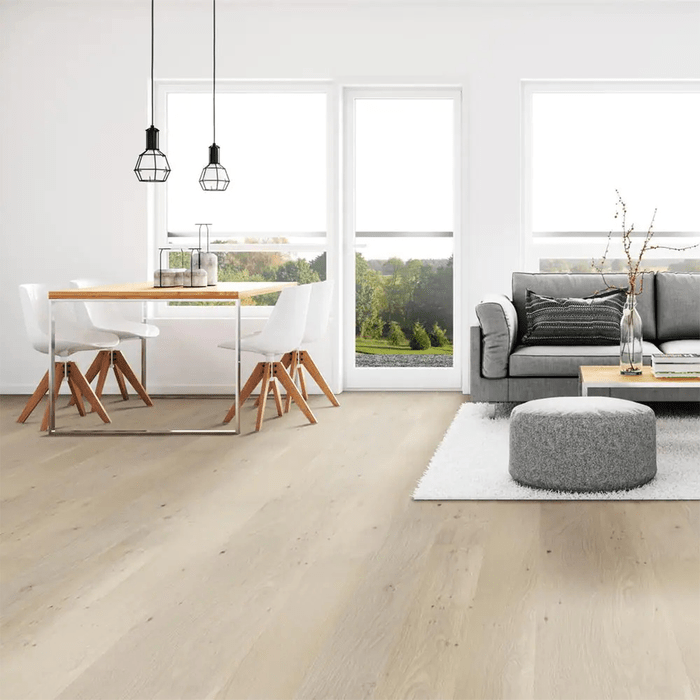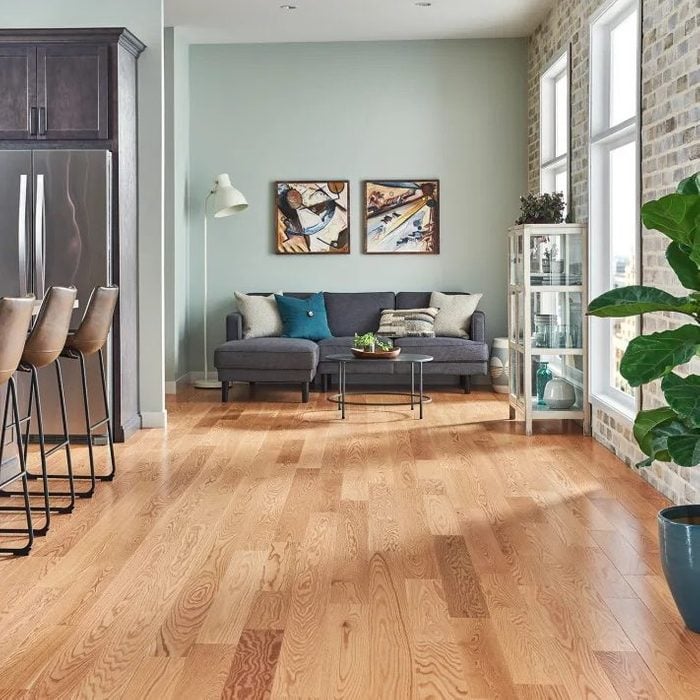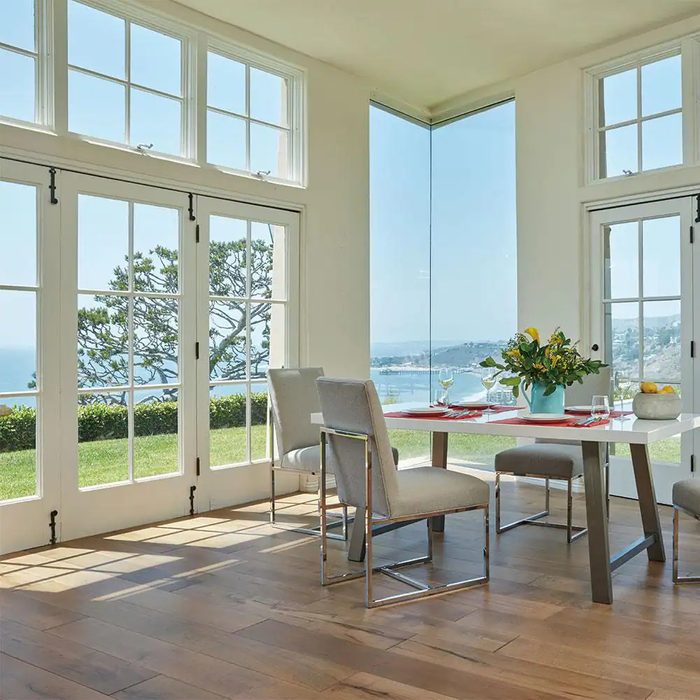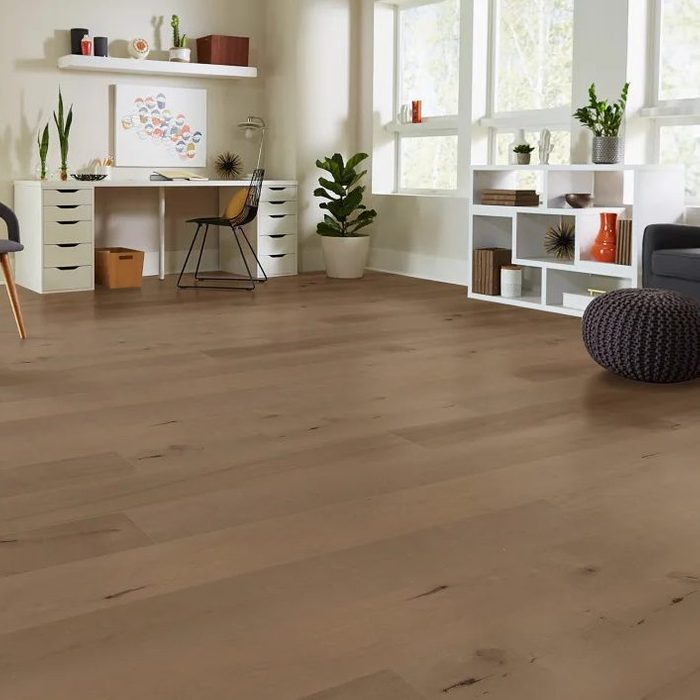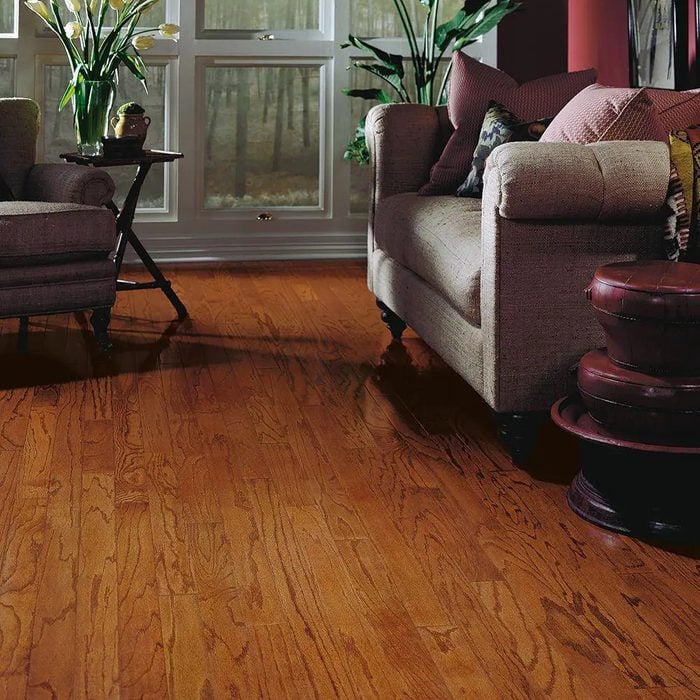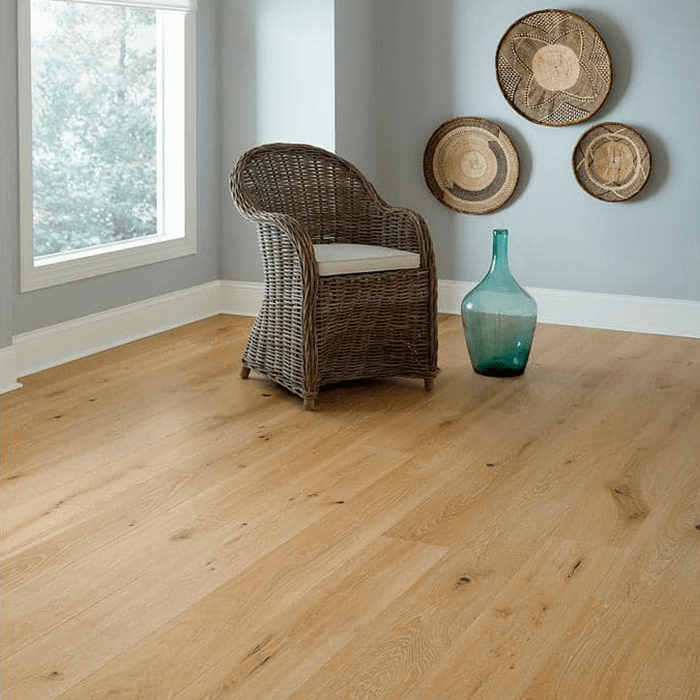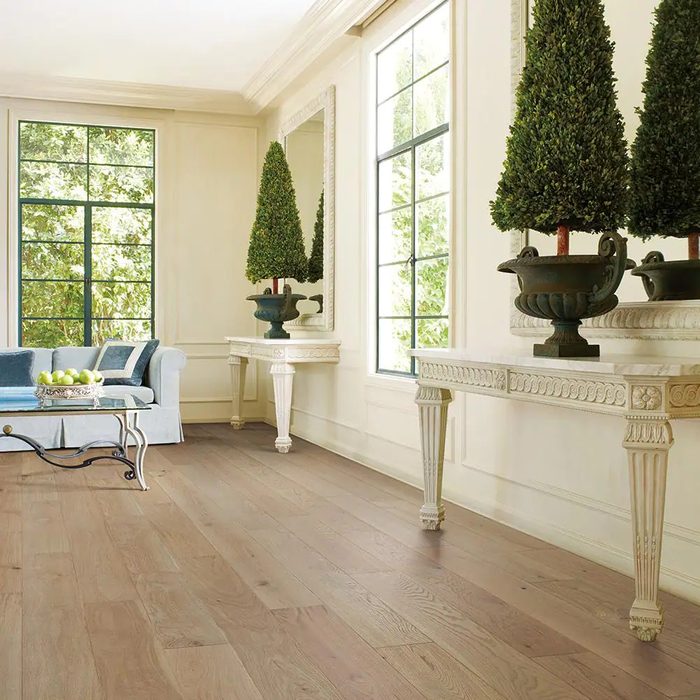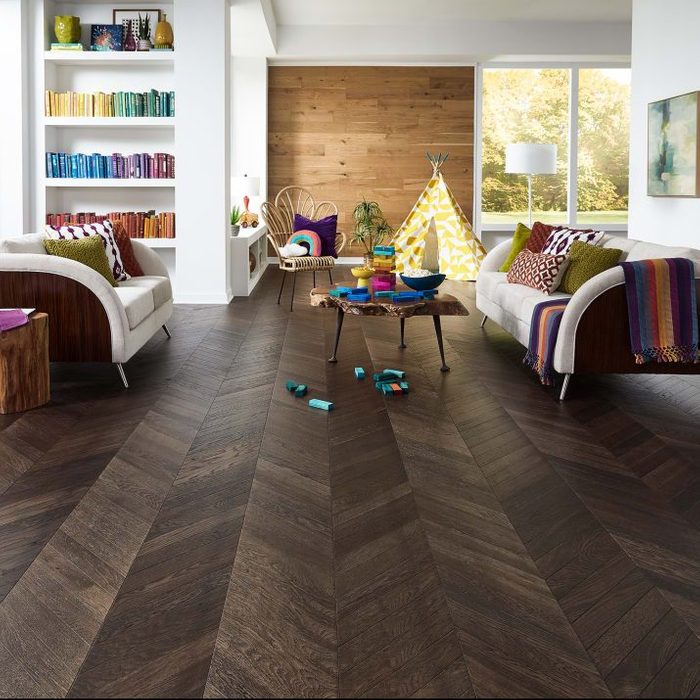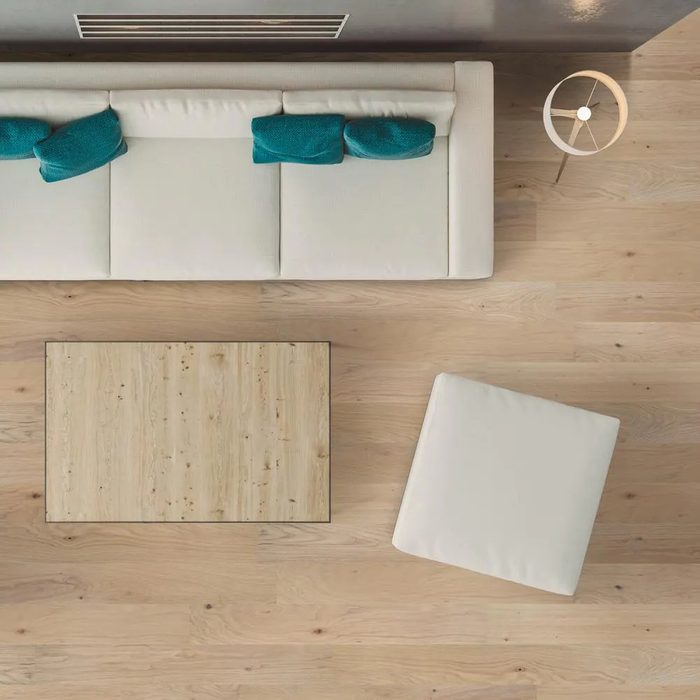Buying Engineered Wood Flooring
Unlike solid hardwood flooring that’s made of a single piece of wood, engineered wood flooring is plywood or a composite with a hardwood surface. This surface layer is called the veneer, and gives the appearance of solid hardwood flooring.
Engineered wood flooring is typically cheaper than solid hardwood, and can be sanded down and refinished if the veneer is thick enough. Engineered wood flooring is also much easier to install. Unlike solid hardwood, which must be nailed to a subfloor, it typically uses interlocking planks that are much more DIY-friendly.
We consulted with an expert in the field, Nick Yahoodain, CEO of Advanced Builders and Contractors, to further explain what engineered wood flooring is and what to take into account when purchasing.
- Material: Underneath the veneer is the core of the board, most commonly plywood — multiple layers of wood glued together. Some engineered wood flooring products have cores of medium-density fiberboard (MDF) or high-density fiberboard (HDF). Both are made of hardwood sawdust combined with resin to provide a strong, stable foundation. Although all these options are effective, the dense construction of MDF and HDF make them more water-resistant than plywood. Stone plastic composite (SPC) is the most water-resistant of all engineered wood flooring cores, although it’s much heavier, and its thin veneer can’t be sanded.
- Width: Flooring plank width affects the overall appearance of the room. Wider planks generally provide a classic, rustic feel, and narrower planks a more contemporary look. Yahoodain says engineered wood is available up to seven inches wide, whereas hardwood is usually only up to six inches wide. “Anything past five inches wide has an increased risk of moisture issues,” he says. For many manufacturers, the maximum width for natural hardwood is four inches.
- Thickness: Yahoodian says the thickness of engineered wood flooring indicates how easy it will be to repair or refinish. Thinner boards are more prone to damage than thicker boards because dents and gouges are more likely to go through the veneer and into the core below, which can’t be refinished. Tip: Keep an extra box of your engineered wood safely stored in case you need it for repairs.
- Cost: Engineered wood flooring can cost as little as $2.50 and as high as $10 per square foot. (Natural hardwood can range from $4 to $12 per square foot.) If you hire a pro to install it, installation runs from $3 to $10 per square foot.
- Installation: Engineered wood flooring is almost always easier to install than traditional hardwood flooring, but some methods can be better suited to DIYers than others. “Floating” options are the least labor-intensive; you simply click the pieces together, no fastening required. Others may need to be glued or stapled to the flooring below. If you DIY, carefully review the installation requirements of your flooring option to ensure you’re up to the task.
- Moisture resistance: Yahoodain says if you live in a humid climate, you’ll have fewer warping problems with engineered wood than with hardwood flooring. Just be cautious of spills or any kind of moisture, including cleaning products. Engineered wood flooring performs better than traditional hardwood with a concrete subfloor. Moisture that rises from concrete is more likely to warp traditional hardwood.
Best Engineered Wood Flooring: Best Overall
This Bellawood Engineered Red Oak flooring combines a robust veneer thickness (three millimeters) with an attractive, reddish tan color that complements a wide range of home styles and décors. Plus, the versatile five-inch width works well almost anywhere. This flooring must be nailed or glued, so it’s not as easy to install as a floating floor option.
Best Engineered Wood Flooring: Extra-Wide Planks
At 7-1/2 inches-wide, the Malibu Wide-Plank Maple Cardiff is a great choice for those who prefer a contemporary look. It comes in eight colors and features a thick, seven-ply plywood core for extra stability.
Installation is relatively simple due to the tongue-and-groove edges that can be glued, floated or stapled. The lifetime limited residential warranty is one of the best available.
Best Engineered Wood Flooring: Water Resistant
Thanks to an SPC core that provides water protection for up to 72 hours, AquaSeal Moselle River Maple works for those who anticipate frequent spills and splashes from kids, pets, and other family members. If you don’t notice a spill or it happens overnight, it won’t ruin your floor This water resistance is also covered under an impressive 50-year residential warranty.
Best Engineered Wood Flooring: Narrow Plank
The three-inch width of Bruce Oak Gunstock works well in small rooms when you’re going for a traditional look. It’s durable too, with a sturdy HDF core that’s resistant to moisture damage. A 1.8-mm veneer thickness makes future repairs possible. Its 25-year limited warranty is shorter than most other options, though, so keep that in mind.
Best Engineered Wood Flooring: Extra-Thick Plank
Aspen Flooring Euro White Oak boasts an impressive 4-mm-thick veneer, making it well-suited for heavily-trafficked homes. This extra-thick veneer can be sanded and refinished several times, great for those who want their floors to last an extremely long time. It’s available in 28 finishes too, so regardless of your home’s current style you should find an option that works for you.
It may be more expensive than our other picks, but the durability and refinishing options could be worth it to the right customer.
Best Engineered Wood Flooring: Easy Installation
Malibu Wide Plank French Oak Crown can be glued or floated, making it a good choice for DIYers. It’s constructed with an HDF core, making it more water-resistant than similar plywood options, and it’s available in 10 finishes and colors. The 1.2-mm veneer is relatively thin, though, so it won’t be the most durable option for sanding or refinishing.
Best Engineered Wood Flooring: Splurge
If you’ve got the budget for it, the attractive chevron pattern and 11-1/2-inch width of Bellawood Artisan Manhattan Chevron could transform your home’s floor into a contemporary masterpiece.
The manufacturer offers a 100-year residential warranty, transferable from owner to owner. The finish of this flooring cannot be sanded and refinished, though, and the patterned design might be a challenge for DIYers to install correctly.
Best Engineered Wood Flooring: Best Value
Despite costing less than any other option on our list, Lifeproof Shenandoah Oak flooring offers easy installation and a scratch-proof finish. It’s available in 14 colors and finishes. Although its 1.2-mm veneer can’t be sanded and refinished, a protective aluminum oxide coating extends its lifespan, even in busy households.

